
Answer:
Yes, there is evidence that certain supplements may help to reduce stress, although, in some cases, the evidence is weak and mixed. There are also supplements the don't help with stress, despite being promoted for that use. These are discussed below, as well as nutrient deficiencies that have been linked with stress responses.
Supplements that may reduce stress
There is some evidence that the herbs passionflower and lemon balm may be helpful for reducing stress, anxiety, and/or anxious mood (Harit, Research Square 2023; Haybar, Clin Nutr ESPEN 2018; Savage, Phytother Res 2018; Lakhan, Nutr J 2010).
Preliminary, short-term studies suggest that holy basil extract may help to reduce symptoms of stress and anxiety (Sampath, Indian J Physiol Pharmacol 2015; Saxena, Evid Based Complement Alternat Med 2012; Bhattacharyya, Nepal Med Coll J 2008), but more research is needed to determine if it is effective and safe for these conditions.
A particular probiotic has been shown to lower levels of the "stress" hormone cortisol, and measures of psychological distress such as depression and anger (Messaoudi, Br J Nutr 2011).
There is weak evidence that valerian supplements may produce a calming effect in stressful situations (Andreatini, Phytother Res 2002).
A manufacturer-funded study among 56 healthy adults with moderate stress showed that taking 500 mg of Relora (Next Pharmaceuticals) daily for 4 weeks reduced self-reported overall stress by 11%, tension by 13%, and salivary cortisol (a stress hormone) by 18% compared to placebo (Talbott, J Int Soc Sports Nutr 2013). An earlier study of Relora (funded by Next Pharmaceuticals) among 26 premenopausal women (average age 39) with self-reported anxiety showed that taking 250 mg of Relora three times daily for 6 weeks did not reduce general anxiety, but reduced transient anxiety by 14.3 points (on a scale of 20 to 80), which was significant compared to placebo, which showed a 7.6 point reduction (Kalman, Nutr J 2008). Each 250 mg capsule of Relora is standardized to 1.5% honokiol (from magnolia bark) and 0.1% berberine (from Phellodendron), but the amounts of each ingredient are not specified. It is unclear if either ingredient would help reduce stress if taken alone or in different formulations, as clinical trials appear to be lacking.
Supplements that may or may not reduce stress
Fish oil may blunt some of the effects of mental stress, such as increased heart rate and nervous activity (Carter, Am J Physiol 2013), although not all research agrees (Bradbury, Front Pharmacol 2017).
Ginseng is sometimes promoted for reducing stress, although one clinical study found it did not have an effect on cortisol levels (Lyon, J Psychiatry Neurosci 2001).
There is mixed evidence as to whether ashwagandha or saffron extract reduce stress (Pandit, Nutrients 2024; Pouchieu, Nutrients 2023; Smith, J Psychopharmacol 2023; Jackson, Front Nutr 2021; Remenapp, J Ayurveda Integr Med 2021; Salve, Cureus 2019).
Supplements that do not reduce stress
Most studies with L-theanine (an amino acid found in black and green tea) have not found it to help with stress (Moulin, Neurol Ther 2024; Evans, Neurol Ther 2021; Lu, Hum Psychopharmacol Clin Exp 2004).
Nutrient deficiencies that might worsen stress
Be aware that low blood levels of iron and vitamin B6 have been associated with stress responses such as hyperventilation and panic attacks in women (Mikawa, Acta Med Okayama 2013), so be sure you're getting sufficient intake of these nutrients.
Join today to unlock all member benefits including full access to all CL Answers and over 1,400 reviews.
Join NowAlready a member? Sign In Here.
Join now at www.consumerlab.com/join/

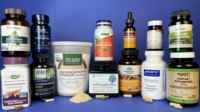
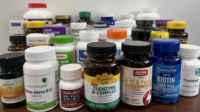

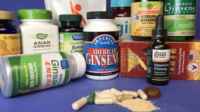
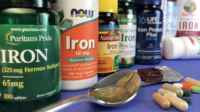


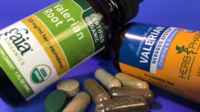
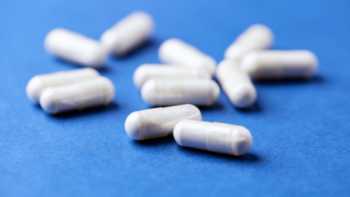





Submit your comment
This feature is restricted to active members.
Join now to add comments and get all member benefits, including over 1,400 reviews.
Join NowAlready a member? Sign in here.